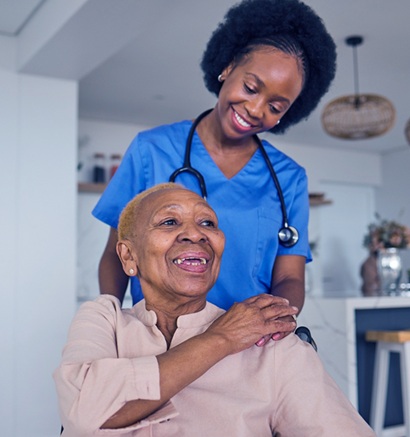Copied from www.nenesterling.com
There is a misconception that everyone wants to come and live in the UK and that the grass is greener in the diaspora for the Nigerian ageing population. In that regard, there is never an international flight leaving Nigeria that does not have a group of over 75 and retired travelling for an extended visit to their child/ren.
This blog is for the "extended visitor", not for people who have decided to come to live permanently in the UK. This guide can also be applied to them. But the mindset shift is the difference between those on a visit and those on a mission.
We want to keep our elderly parents fit and well for their return home if not travelling back becomes a problem.
How to bring your elderly parents to the UK is never an issue. The issue is what to do with your elderly and often frail parents when they come to visit you in the UK. For many Nigerians, bringing their parents into the UK is a huge milestone achievement 👏. However, little thought is put into what to do with them when they get here. How can they be kept well until they are ready to go back?
Here lies the problem.
Being confined in a property in the diaspora is not fun and games. The confinement is often the beginning and faster route to health challenges for the elderly.
Once the novelty has worn off, their health tends to decline fast. Often visible with feelings of isolation from their peers in their home country, memory loss, decline in mobility, and lack of appetite, which affects their ability to regulate body temperature (always complaining of being cold) and easily irritable.
You will be surprised what a couple of weeks away from their home can do to their health. It is therefore worth thinking carefully about the challenges involved in taking care of your elderly parents once they come to visit you in the UK.
Below are 5 considerations and practical steps for you to reflect on.
These are not in any particular order and are not a complete list.
1 - Location
The location of your home is really important.
Think of your home's geographical location and how accessible it is to others and your parents. Is it accessible by public transport? Or is it only accessible by car? How close is it to local shops, parks, etc.? If given the opportunity, can your parents leave and return independently? Are you accessible enough for friends and family to visit and provide additional support?
2 - Health requirement
As we age, we acquire long-term conditions that require specialist management.
Think about the known medical needs of your parents. Do they have access to medical facilities and specialist support in the UK? How far do you need to travel to access these?
There are many private doctors and private hospitals in the UK, and the NHS provides free health care for UK residents. However, it is good to note that overseas visitors will be charged 150% of the cost of NHS treatment
3 - Family support
Age UK says social interactions "help maintain thinking skills as we age".
Think about additional support from family and friends. Unless you have a lot of time to focus on your parents, you will likely need additional support from your friends and family. Accepting all the initial offers and drawing up a rota to involve everyone who cares may be helpful.
4 - Accommodation
The consideration here is about the layout and accessibility of your home to the functional ability of your parents. There is an assumption we make that everyone can climb stairs. That changes as we age.
An occupational health assessment may benefit you and give you an idea of simple adaptations or equipment you can get to make life easy for your parents.
You can enhance the safety of your home by keeping hallways free of clutter, adding grab rails to the bathroom, using bright lights to improve visibility, and removing rugs to reduce the risk of falls. Assist them while they use the stairs.
You may be able to apply for a Disabled Facilities Grant which could make a financial contribution towards home adaptations.
5 - Social activities
What social activities do you plan to activate for your parent? Always remember, if you don't use it, you lose it (nursing 101). Inactivity is a slippery slope for elderly people. They gradually lose their muscle mass and the ability to mobilise independently may lead to serious health problems. Furthermore, the lack of mobility has an impact on digestion and bowel movement. Then it becomes a vicious circle.
Scheduling a daily walk is a great place to start. Take it nice and slow, but be consistent.






